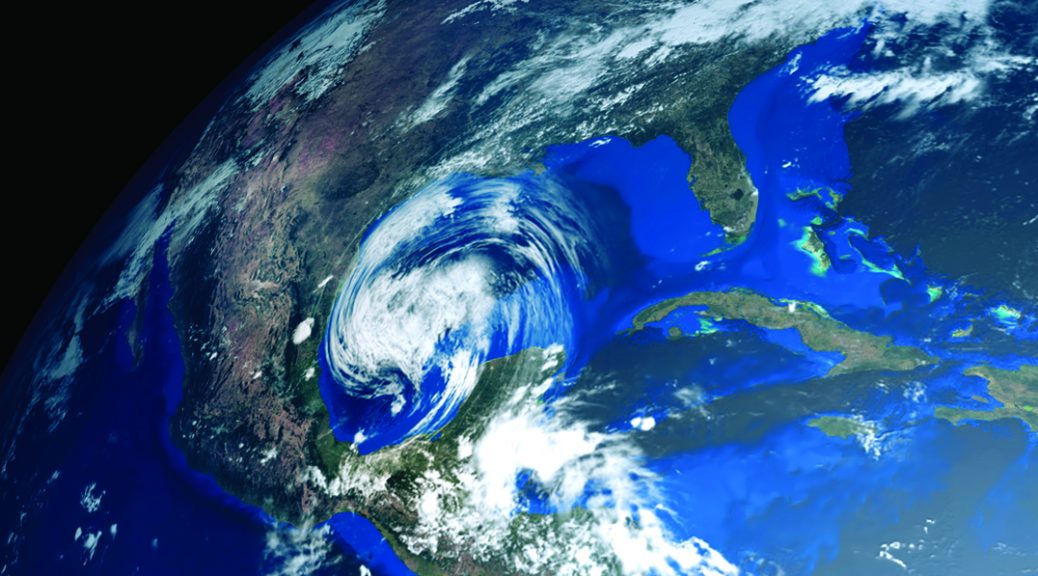A team of engineers, including Dr. Muhammad K. Akbar, Tennessee State University Assistant Professor of Mechanical and Manufacturing Engineering, is diligently working to more accurately predict which areas should be evacuated during threats of hurricanes.

Akbar said when people are asked to evacuate unnecessarily, they lose trust and become less likely to evacuate when future warnings are given. Accurate surge storm predictions save lives and properties through timely evacuations, he said.
The team is developing a new implicit solver-based storm surge model called CaMEL(Computation and Modeling Engineering Laboratory). It is being evaluated against ADCIRC (ADvanced CIRCulation Model), an established storm surge model. Akbar said that while the ADCIRC model is faster, CaMEL is more stable.
Storm surge, according to the National Weather Service, is the change in the water level that is due to the presence of the storm. Storm surges are caused primarily by the strong winds in a hurricane or tropical storm.
Akbar said they input meteorological data approximately every six hours to forecast the hurricane’s wind track and strength for the entire duration through its landfall and beyond. Their results help emergency management to communicate with first responders which areas should be evacuated.
“Our goal is to merge the good features of both models in one to improve our prediction capabilities,” he said. Scientists are working on different fronts to understand the complex physics of hurricanes and evolution of storm surges.
“Understanding the underlying physics will help us to improve the prediction capabilities of hurricane storm surges,” Akbar said. “An accurate storm surge model could save millions of dollars by preventing unnecessary evacuations.”
A native of Bangladesh, Akbar cites the devastation caused by the Bhola Cyclone that killed nearly 500,000 people in his homeland in 1970, as one of the major motivations for his research.
Aided by a $209,403 grant from the National Science Foundation, Akbar also receives funding from the Department of Homeland Security and the US Army Engineer Research and Development Center.
Part of his work includes advising graduate students like Kyra Bryant, who is currently pursing a doctorate in Computer Information Systems Engineering at TSU. Bryant received the Graduate Master’s Thesis Award in February at the Tennessee Conference of Graduate Schools for her research on storm surges.
“Receiving the award is a great honor for Ms. Bryant, and all of us at Tennessee State University,” Akbar said. “It is an encouragement and motivation for us to advance the research to the next level.”
According to NOAA, the National Oceanic and Atmospheric Administration, each year, the United States averages some 10,000 thunderstorms, 5,000 floods, 1,300 tornadoes and two Atlantic hurricanes, as well as widespread droughts and wildfires. Weather, water and climate events, cause an average of approximately 650 deaths and $15 billion in damage per year and are responsible for some 90 percent of all presidentially-declared disasters.
Department of Media Relations
Tennessee State University
3500 John Merritt Boulevard
Nashville, Tennessee 37209
615.963.5331
About Tennessee State University
With more than 8,000 students, Tennessee State University is Nashville’s only public university, and is a comprehensive, urban, co-educational, land-grant university offering 38 bachelor’s degree programs, 25 master’s degree programs and seven doctoral degrees. TSU has earned a top 20 ranking for Historically Black Colleges and Universities according to U.S. News and World Report, and rated as one of the top universities in the country by Washington Monthly for social mobility, research and community service. Founded in 1912, Tennessee State University celebrated 100 years in Nashville during 2012. Visit the University online at tnstate.edu.
